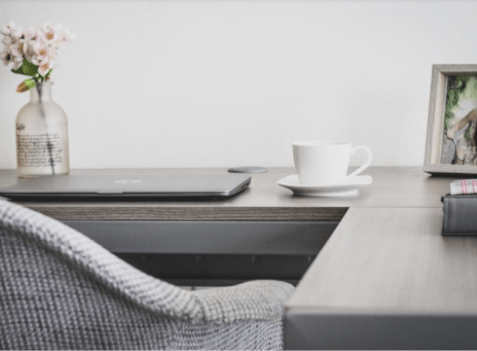How can you protect your team and your business if there are holes in their home IT security?

Working from home should be business as usual, albeit from a different location.
However, working from home on your own equipment presents a whole new level of security risks for your employees and ultimately, your business!
So now is THE time to check that you and your staff are working from home securely.
Company Supplied Devices
The very best way to reduce security risks is to supply everyone working from home a company supplied device. Whether it’s a laptop, desktop, tablet or phone you would have the rights to dictate the rules around its’ usage and therefore, more control of its’ security.
Of course, the reality of supplying your entire staff with new equipment is almost impossible, particularly as right now cash flow may be a little tight or non-existent. Therefore, in the absence of supplying every one of your staff new equipment, it’s important that you need to make sure they are safe and secure as possible while accessing and working with your company data on their own gadgets.
Our top tips on how to work securely from your home equipment.
- We recommend to always log onto your office computer and only use your home computer as the host for the virtual session.
- Where possible, use a Virtual Private Network connection (VPN) to connect to your office machine or office server.
- If you are using cloud-based systems such as Office365, online banking, CRM etc, then make sure you have 2-factor authentication set up.
- Make sure you are using a current operating system and that it has all updates installed.
- An Antivirus programmed needs to be installed and up to date.
- Make sure that 3rd party software (Office, Adobe, web browsers, flash etc) all have the latest updates installed.
- Avoid downloading any business data onto your local computer unless it is absolutely necessary. If you have no option (very slow internet perhaps) then avoid downloading any confidential or sensitive information, make sure it is backed up, keep track of what is downloaded and its location so that afterwards it can be removed to avoid the risk of data loss.
- Make sure your home router and WiFi is secure and not open for anyone to log onto. This is very important when you have WiFi networks in close proximity, such as flats or apartments.
- Be careful of what websites you are going to and be very mindful about what emails you are clicking on (scammers on not on holiday).
- Have an exit plan and keep records of who has remote access to company data/systems, who has installed company software on home computers, any data that has been downloaded, backups that have been made and are being stored by staff onsite or in the cloud, network permissions that have been relaxed etc. So that you can either revert these changes afterwards or plan to manage them in a more secure and proactive way going forwards.
- Don’t wait for something to go wrong.
Working out how to protect your IT security at home can feel hugely complicated, but that doesn’t mean that it can be ignored.
Don’t wait to find out that there are holes in your home IT security. Call us on 020 8649 9911 or email us to find out how we can help protect you, your staff and your business right now.
